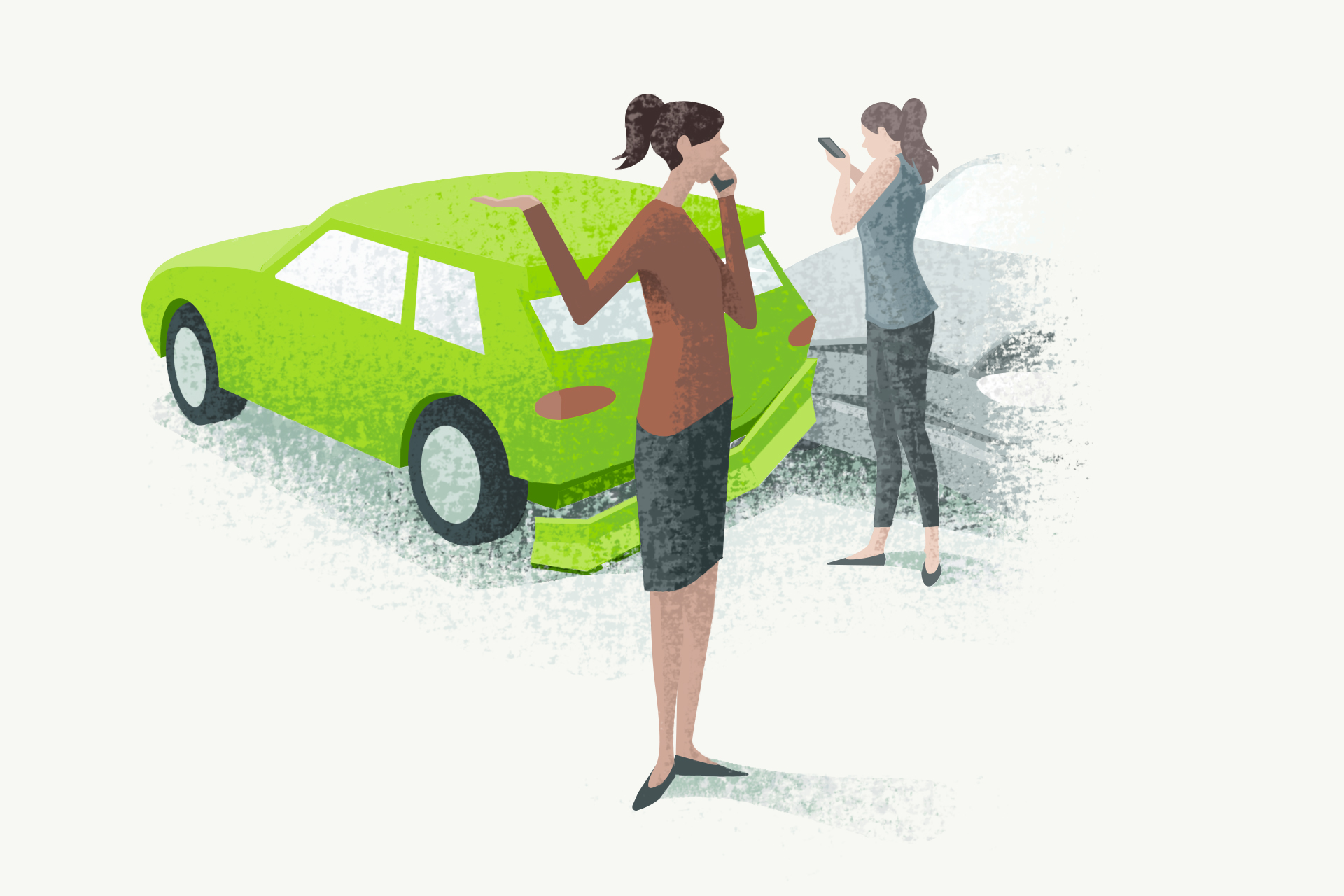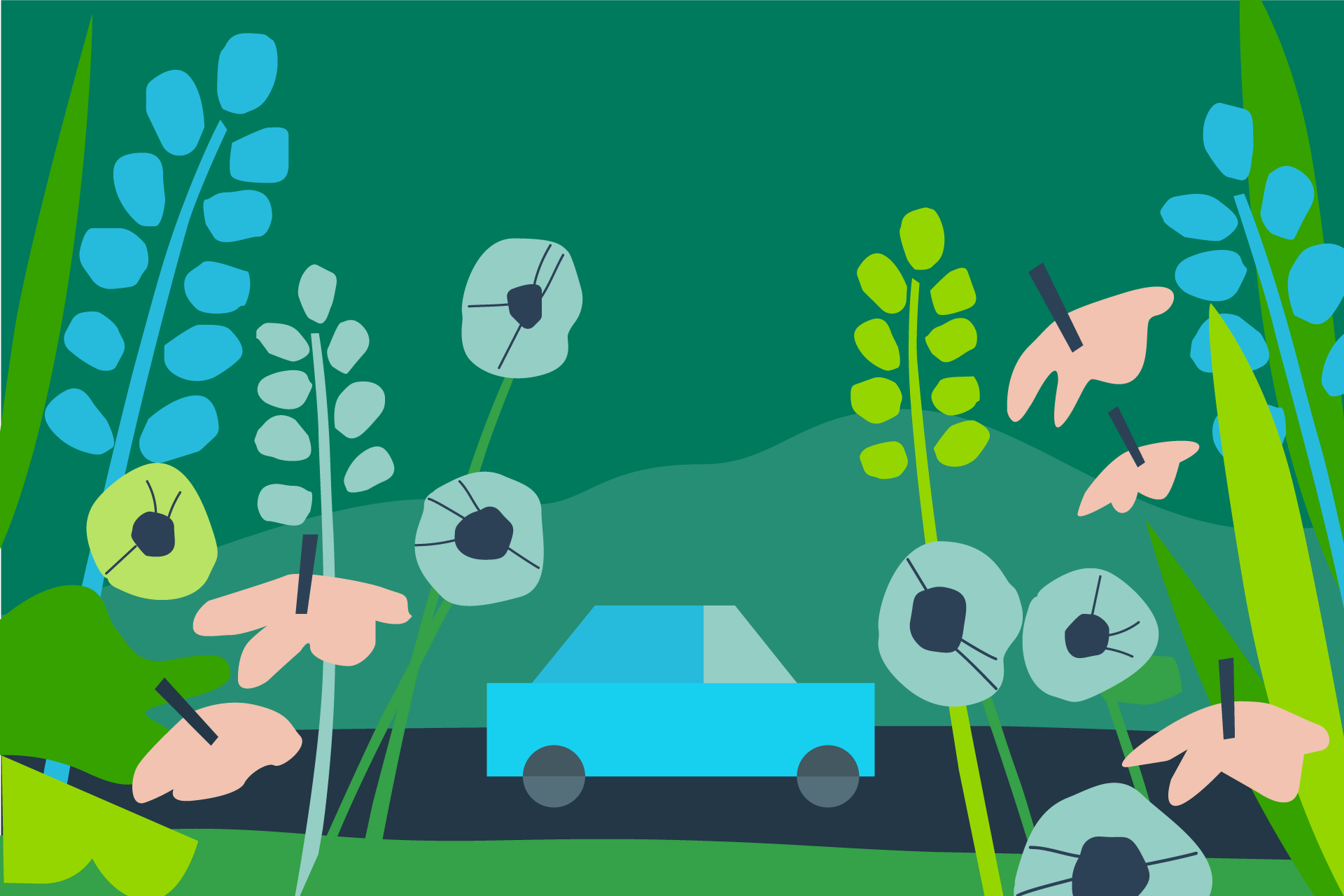Caffeine and the brain: can coffee improve your driving?
March 10, 2022
One cup. Two cups. Three cups. Four.
Your morning coffee, the daily tea or your larger than life energy drink—they all may have one thing in common: caffeine. You can thank caffeine for your daily focus, alertness and desire to get things done. So many of us are hooked, and in a big way.
But is that what it’s really doing? Let’s address those coffee jitters and talk about the effects of caffeine and how it plays a role in your moves behind the wheel.
How caffeine affects the brain
For some of us, we can’t imagine our day starting without a caffeine pick-me-up. So what’s the big deal? What magic does caffeine possess that we find ourselves almost dependent on it?
The
Dana Foundation educates us on how caffeine can affect the brain by diving into the science of this popular psychoactive stimulant. Your favorite caffeinated drink can increase the activity in your brain and nervous system, but how?Caffeine blocks receptors in the brain for a biochemical known as adenosine, which helps your central nervous system settle down, allowing you to relax and sleep. So when you have that morning cup of coffee, the caffeine blocks adenosine—keeping you alert and awake. And because the popular stimulant is absorbed quickly, you may feel the effects of caffeine within 10 to 15 minutes.
Caffeine affects the brain in a few key ways. Business Insider shares what caffeine (in moderation) can do for you and how that may be a benefit to you behind the wheel. Here are some key standouts they shared:
Improved heart function. Contrary to popular belief, caffeine has been shown to potentially reduce an irregular heartbeat and may contribute to an improved heart rate. By blocking that biochemical adenosine, caffeine may reduce heart risks.
Improved memory. Shown to improve certain types of memory, caffeine can help improve the ability to remember words and straightforward information. It may also help you retain memories over long periods of time.
Improved athletic performance. Known as the most common performance enhancing chemical, caffeine (when dosed appropriately) can give athletes a boost in performance, when not used excessively in day-to-day life.
Improved attention span. One of the most common reasons people drink caffeine is to help them focus on a task. A lack of adenosine improves your ability to focus, especially when you may already be feeling fatigued.
Improved mood. As a central nervous system stimulant, caffeine not only increases your alertness but can improve your mood. When your body feels more alert, caffeine allows dopamine and glutamine to potentially help you be less bored and experience a boosted mood.
With these benefits in mind, we want to take it a step further and apply these benefits to your decisions behind the wheel. Can caffeine help be a help or a hindrance when you drive?
The benefits/concerns of caffeine for driving
What can those benefits do for you when you hit the road? At HiRoad, we reward you for the positive decisions you make behind the wheel. Those decisions can often be influenced by mood, attention and alertness—all things caffeine can help with.
Take a boosted mood. Being in a good, positive mood is the best precondition for safe driving. Not to mention, happy drivers produce fewer accidents.
If caffeine can also help improve your focus and attention, that’s music to our ears. When you drive focused, with your attention on the road and not on your phone—you’re racking up points in the HiRoad app through our Driving Scores (Distraction Free, Smooth Driving, Driving Patterns, Safe Speeds).
Speaking of driving focused, you may be wondering if drinking caffeine behind the wheel is legal? While there are no specific laws that consider drinking caffeinated beverages while driving illegal, distracted driving
is illegal.The National Highway Traffic Safety Administration, National Safety Council and Centers for Disease Control and Prevention (among other institutions) all advise that anything that takes your attention away from driving serves as a distraction—that includes things like daydreaming, eating food, sipping beverages, moving children or pets, listening to loud music and so on.
So if you take your caffeinated drink of choice with you for the road, take our advice: travel with a thermos and take your sips before you hit the road.
Caffeine (from a scientific point of view) can benefit you behind the wheel, but when is it considered too much? Are all of these benefits too good to be true? Certainly. It is possible to have too much of a good thing.
Dangers of overdoing it
If you’re hooked on caffeine, you may want to know about the potential concerns or issues of consuming your favorite morning beverage. Let’s first talk about the right amount of caffeine. The amount lets you reap the benefits of the stimulant and prevent some of the less-than-ideal effects (more on that later).
Cleveland Clinic states that for healthy adults, 400 milligrams (or less) of caffeine a day is considered safe. That’s equivalent to four 8 oz cups of coffee or 10 12 oz cans of soda. (Surprisingly, a can of Coca-Cola has just 34 mg of caffeine.)
Consuming more than that can produce unwanted side effects, which can spell trouble behind the wheel. Cleveland Clinic states that over-caffeinating can lead to insomnia, anxiety, dehydration, high blood pressure, heartburn and heart palpitations/racing heart.
What does it come down to? Finding a balance in all things. Consider drinking your caffeinated drink in the morning or early afternoon to prevent insomnia and reserve those positive effects of caffeine when you need them the most—at work, home or on the road.
Driving distraction-free and focused on the road ahead are two things we’re big on at HiRoad, and if your morning cup of coffee can help you get there, we’re here for it.
The information in this article was obtained from various sources not associated with HiRoad®. While we believe it to be reliable and accurate, we do not warrant the accuracy or reliability of the information. HiRoad is not responsible for, and does not endorse or approve, either implicitly or explicitly, the content of any third party sites that might be hyperlinked from this page. The information is not intended to replace manuals, instructions or information provided by a manufacturer or the advice of a qualified professional, or to affect coverage under any applicable insurance policy. These suggestions are not a complete list of every loss control measure. HiRoad makes no guarantees of results from use of this information.
Stay on the path
Get HiRoad in your inbox
Share your email to get the latest about our community of mindful drivers.



